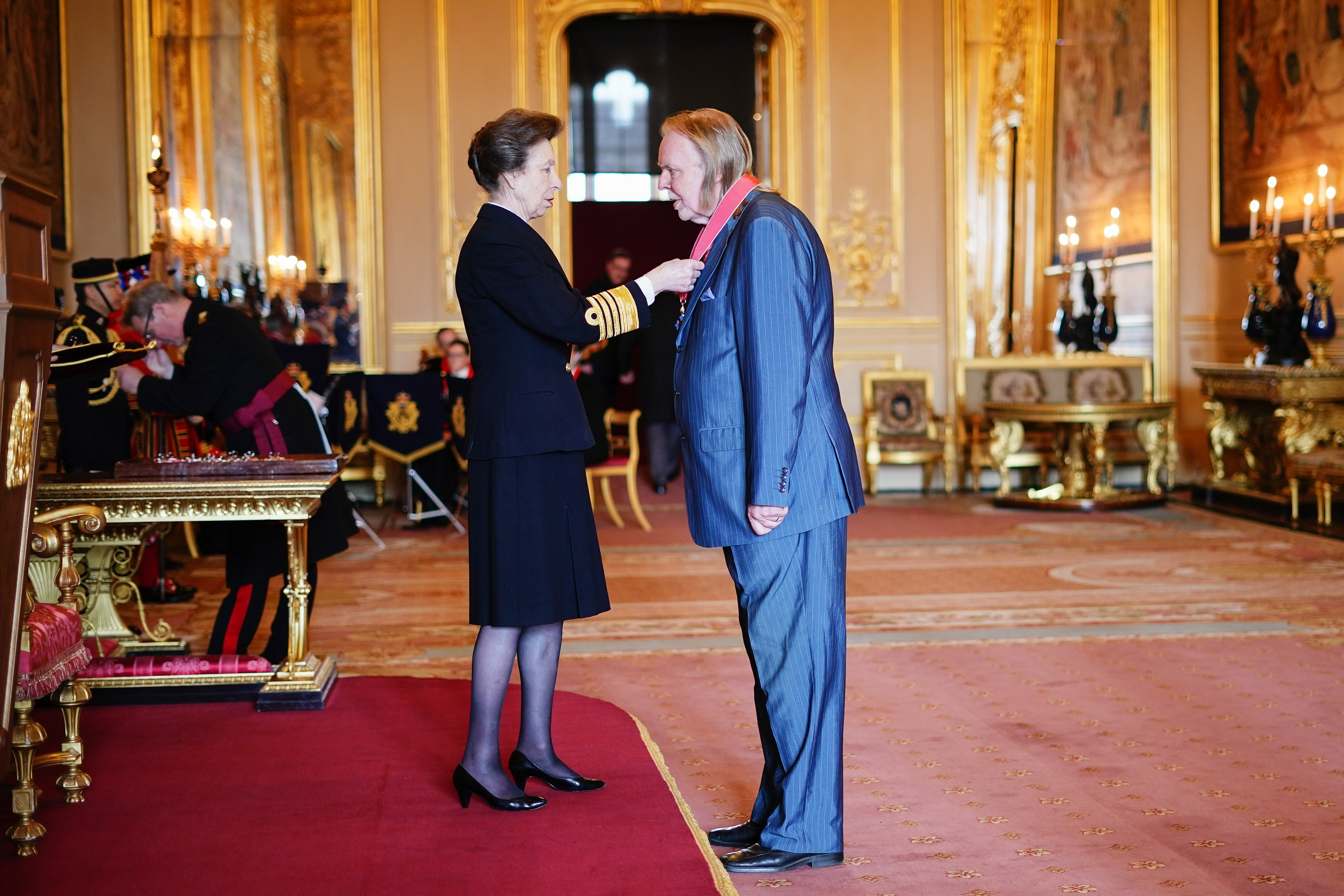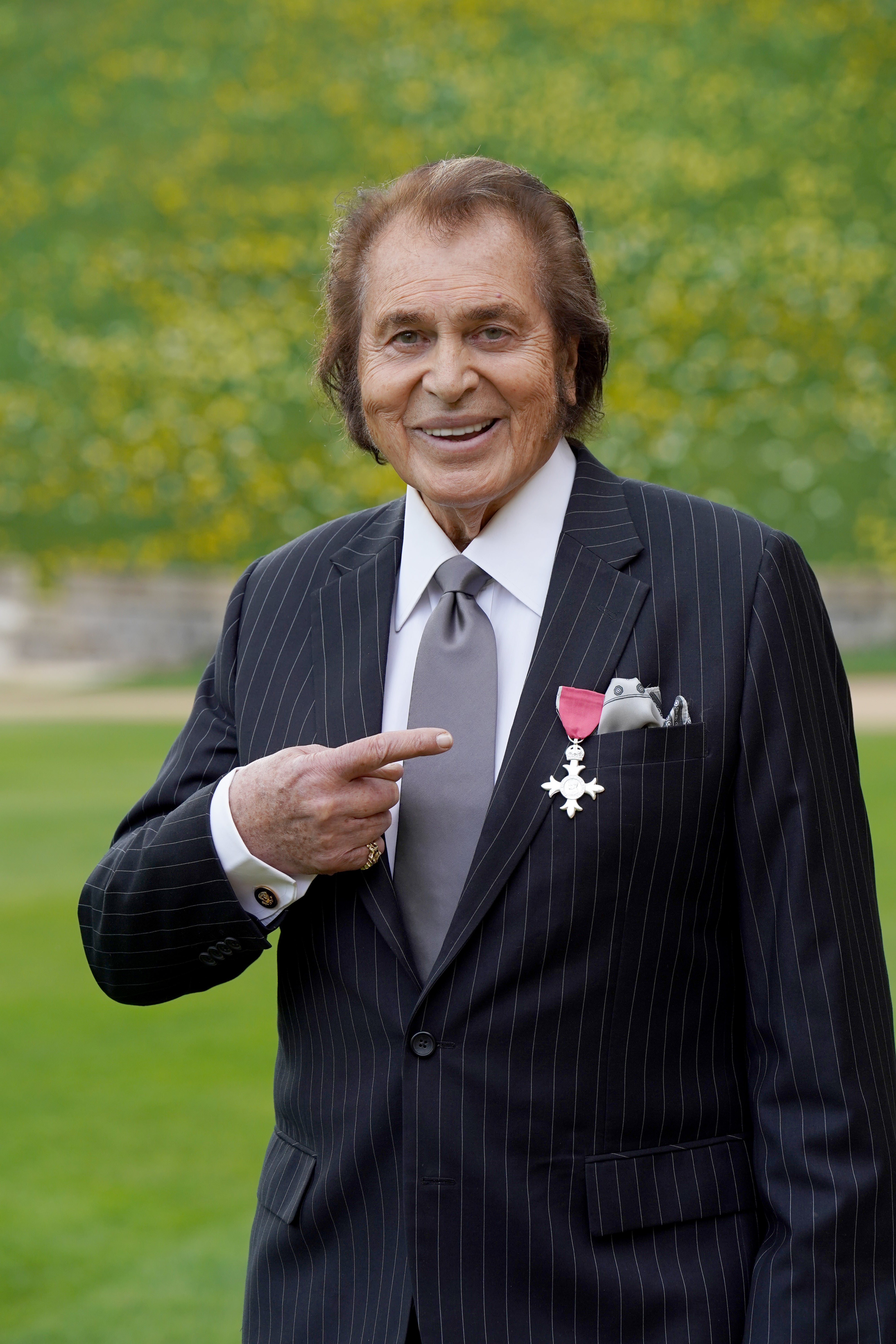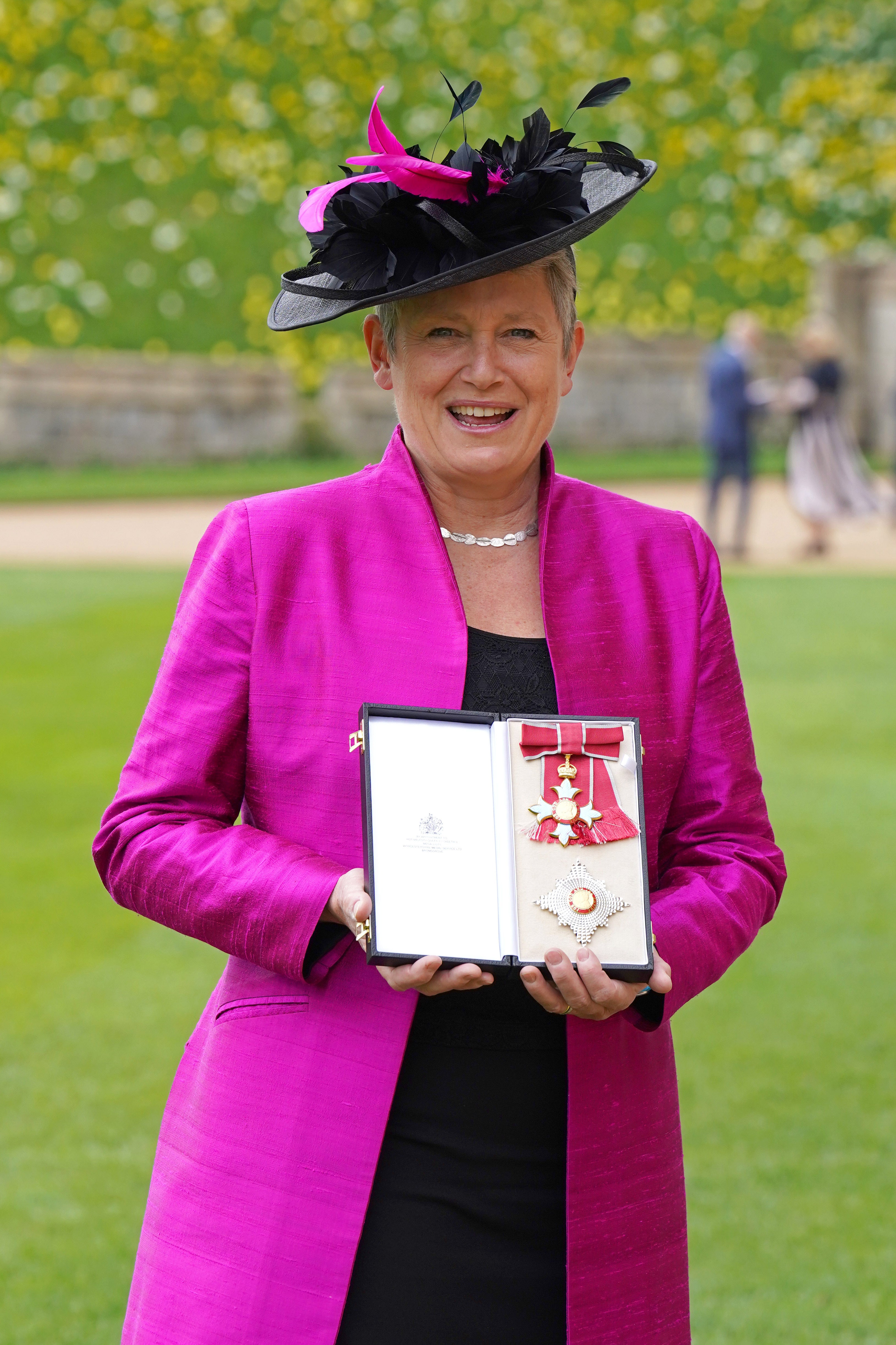
Veterans of the music world – keyboardist Rick Wakeman and crooner Engelbert Humperdinck – have been recognised for careers spanning more than five decades.
Wakeman best known for playing with prog-rock superstars Yes, and who also worked with David Bowie and Sir Elton John, was made a CBE by the Princess Royal.
Humperdinck, who rose to prominence in the late 1960s with chart-topping hits such as Release Me and The Last Waltz, was made an MBE during the investiture ceremony hosted by Anne at Windsor Castle.

Despite his advancing years, Wakeman shows no sign of letting up: “I’ve done London, Sheffield, Birmingham, Glasgow and Newcastle in the last five days and then it was cut short to come back and do this,” he said.
The 72-year-old, who was inducted into the Rock and Roll Hall of Fame in 2017, added: “I love it, I wouldn’t do it otherwise.
“I was born in 1949 and radio was, shall we say, you had the Home Service and the Light Programme and television was in its infancy – by the time you turned it on and it warmed up, you had to turn it off – so it was just making music and playing football.”
Wakeman, whose solo albums have sold more than 50 million copies, was born and raised in Perivale, west London, and trained to become a concert pianist.
However, he quit his studies at the Royal College of Music in 1969 to become a session musician, with early work including Space Oddity by Bowie.

He was enlisted by The Strawbs in 1970 before joining progressive rock pioneers Yes a year later and went on to play on many of their most successful albums across two stints until 1980, and has since returned to the band on a number of occasions.
Looking back at his career, the musician added: “Working with David Bowie was amazing – I did quite a lot with him, his Space Oddity single, Hunky Dory album.
“I’ve played on some nice records: Cat Stevens’ Morning Has Broken – I did all the piano for that and then working with Yes playing big stadiums. And I enjoyed just as much playing in a small venue – I’m quite happy.”
As well as his quirky stage name, Humperdinck, 85, is famous for his trademark sideburns, dyed auburn hair and deep tan, which he shows off regularly in the jovial videos he shares on social media.
His popularity has endured through the decades and the singer was still active and touring before the coronavirus pandemic intervened.
Humperdinck was born with the slightly more mundane moniker Arnold George Dorsey in Madras, India, where his father was stationed with the British Army.
After some success in Europe in the mid-1960s, Humperdinck exploded in popularity with his 1967 cover of Release Me.
The song, which arguably remains his best known, reached number one in the UK – beating the Beatles’ Penny Lane – and broke into the top 10 across the Atlantic.
I’m overwhelmed, and a Member of the British Empire is a great order, and I thank Her Royal Highness for giving it to me today
Humperdinck’s catalogue of saccharine love songs – including The Last Waltz, Spanish Eyes and Quando Quando Quando – earned him the nickname “the King of Romance”.
The veteran entertainer, who has sold more than 140 million records around the world, said after the ceremony: “I’m overwhelmed, and a Member of the British Empire is a great order, and I thank Her Royal Highness for giving it to me today.
“I’ve been successful since 1967 and I’m still doing it, and I start on a European tour very shortly and thank god the pandemic is over so we can continue with the job we do best.”
During the ceremony, actor Sir Jonathan Pryce, who declined to speak to the press, was knighted for services to acting and charity.
During his career, the 74-year-old Welsh actor, who has won two Tony Awards and two Olivier Awards, was nominated for an Oscar for his portrayal of Pope Francis in The Two Popes.
He has also supported several charities, including Amnesty International, Epilepsy Action and Neurofibromatosis Association.

Dame Kate Bingham, former chair of the UK Government’s Vaccine Taskforce, was made a dame during the event.
She led the taskforce which selected and pre-ordered the most promising vaccine candidates while they were still in clinical trials which enabled the speedy rollout of the vaccine programme.
Dame Kate said: “I think it’s fantastic, I just wish somehow it recognised a team, because I’m put out as a figurehead when in fact it was a team of women and men from all different backgrounds and expertise.
“And we never met, we only ever did anything on Zoom and we had experts from industry who came together with experts from Government and it worked extremely well.”







